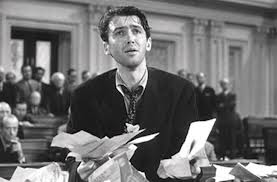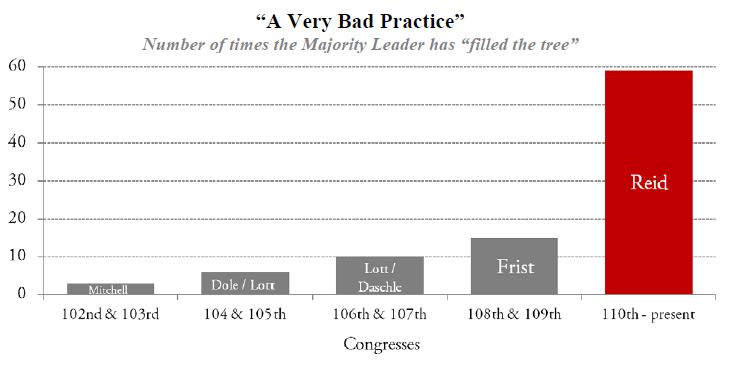Harry Reid ended the filibuster today. I know that he only changed rules that impact nominees other than Supreme Court Justices, but this is Washington – no good deed goes unpunished. Even if the rules are changed back the last day of the session before republicans take the chamber, you can bet that this won’t be forgotten – the republicans will be highly motivated to not only respond in kind but conduct an escalation – in time, there will be no filibuster.
Okay, I guess. There may be worse things.
I happen to believe in the idea that presidential nominees should be afforded the opportunity of a vote. He did, after all, win. Further, Ii think that votes should be brought before the chambers to be voted on. Needing 60 to agree to vote on something that needs 51 is silly.
However, I also believe that the leaders of each chamber should be more willing to allow votes on issues that they don’t necessarily agree. For example, the recent non-discrimination act for gay employees will never see a vote in the house. I don’t like that. And, similarly, Reid doesn’t bring up for votes issues that he personally disagrees with. In fact, one of the reasons the filibuster has been used so often in recent years is that Harry fills the amendment tree preventing the republicans from amending bills.
So, what do people have to say about the nuclear option?
Republican Minority Leader Mitch McConnell says Democrats are fixing to “blow up 200 years of Senate history” just because they’re not getting their way on a handful of “radical” judicial nominees. On Capitol Hill, the threat of the “nuclear option” has created a sort of political ground zero, and activists on both sides believe that the way this thing plays out will control the shape of the federal judiciary — and with it, the interpretation of the U.S. Constitution — for decades to come.
…
Call it a primer on the judicial confirmation process. Call it what you get when you spend way too much time reading Riddick’s Senate Procedure. Just don’t call it the “nuclear option” — at least not when Harry Reid is around to correct you. The Senate majority leader doesn’t want his plan to sound so explosive, but be forewarned: Unless somebody blinks first, we’re in for a mind-warping set of unprecedented Senate maneuvers that could put Joe Biden in charge of deeming the filibuster “unconstitutional” — without a word from those folks in black robes across the street — and grease the way for each and every left-wing extremist Barrack Obama ever cares to put on a district court, an appellate court or the U.S. Supreme Court.
And here’s The Hill:
“To change the rules in the Senate can’t be done by a simple majority. It can only be done if there is extended debate by 67 votes,” McConnell said.
“They are talking about doing something illegal. They are talking about breaking the rules to change the rules, and that is not appropriate. That is not fair, and it is not right,” he said.
And what did The Democrat have to say?
A filibuster allows any Senator to prevent a full vote by extending debate on an issue or a presidential appointee indefinitely and requires a supermajority of 60 votes to “break” the filibuster and force a vote. The ability of three-fifths of the Senators to end such debate — two-thirds, in the case of a motion to change Senate rules — is codified in the Standing Rules of the Senate, Rule 22, also known as “Precedence of Motions.”
… the Democrat majority, in an effort to push through Barack Obama’s far left-wing judicial nominees, sought to get rid of the filibuster via the “nuclear option,” which would have solidified absolute, one-party rule and allowed all of Bush’s nominees to go through with essentially only Republican approval — thus removing any reason for the minority party to even show up in the Senate chamber.
But unlike an ideologically-driven hack like Reid, Mitch McConnell is a Senate purist who believes in the way the Senate has always run and the wisdom of its traditions, even if some of those will benefit the Democrat minority over the next few years.
Okay okay, those sources are accurately linked but changed the names and parties to represent the opposite of reality.
These guys are all a bunch of pukes – both sides. All of ’em. They have all blocked nominations and they have all complained of the minority party having too much power. But now Reid has done it, he’s broken the rule. And the rule will be broken again – and the next time it will be pay back.





